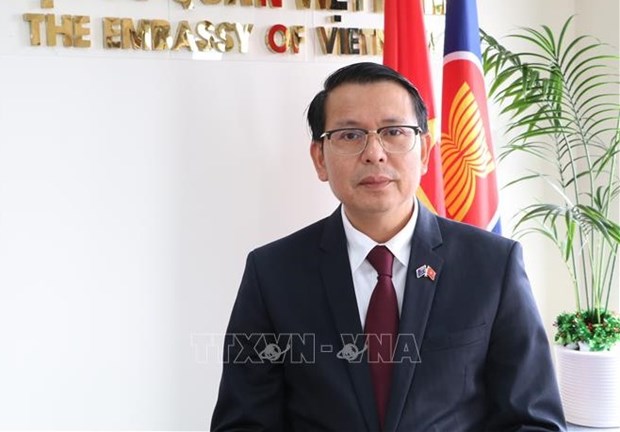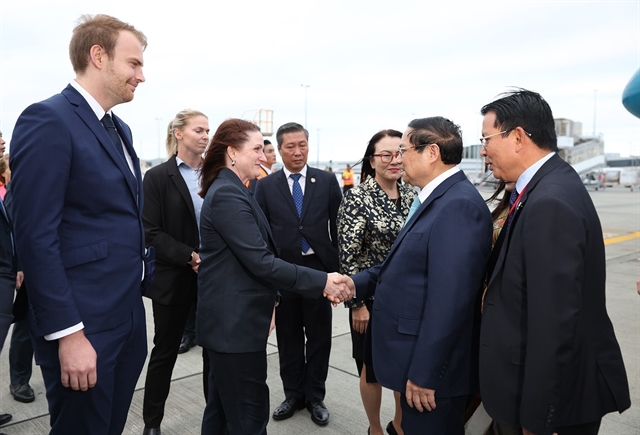 Politics & Law
Politics & Law

 |
| New Zealand officials welcome PM Chính at the airport. — VNA/VNS Photo Dương Giang |
AUCKLAND — Prime Minister Phạm Minh Chính, his spouse Lê Thị Bích Trân, and a high-ranking delegation of Việt Nam landed at Auckland Airport on March 9 evening (local time), starting an official visit to New Zealand from March 10 to 11 at the invitation of his New Zealand counterpart Christopher Luxon.
New Zealand officials welcoming the delegation at the airport included Minister for Economic Development Melissa Lee, Chief of Protocol at the Ministry of Foreign Affairs and Trade Rod Harris, and Ambassador Designate to Vietnam Caroline Beresford.
The delegation was also welcomed by the Vietnamese Ambassador to New Zealand Nguyễn Văn Trung, staff members of the Vietnamese Embassy, and representatives of Vietnamese people in the country.
Over nearly 50 years of diplomatic ties, the two countries’ relations have been developing unceasingly and were upgraded to a strategic partnership in July 2020.
Việt Nam is currently the 14th largest trading partner of New Zealand with bilateral trade reaching $1.3 billion in 2023. As of November 2023, New Zealand had 52 investment projects worth $208.35 million Việt Nam, ranking 39th among 143 countries and territories investing in the country, statistics show.
There are about 11,000 Vietnamese people in the South Pacific nation, mainly in Auckland, Christchurch, and Wellington.
During the visit, PM Chính is scheduled to hold talks and meetings with senior leaders of New Zealand, attend meetings with heads of associations and leading businesses of the country, engage in working sessions with local scientific, technological, and educational institutions, and meet with the Vietnamese community.
The two parties will discuss measures to enhance bilateral cooperation, including traditional areas such as trade, investment, labour, education - training, and agriculture. — VNS




